Property tax is considered an important source of revenue collection in India, especially for municipal bodies. It helps in service delivery such as collection and disposal of waste, providing street lights, maintenance of roads, and provision of physical infrastructure for development.
Howrah Municipal Corporation (HMC) property tax is one of the taxes that are applicable to the property holders of Howrah located in the state of West Bengal.
As per the information given in this blog post, we will provide the reader with detailed information about HMC property tax which has not been done by anyone else yet, and we will include all the aspects of property tax such as its valuation, calculation, payment, conditions, etc.
We would like to inform you that this entire blog on HMC Property Tax written by us has been written after doing completely accurate research. We have not written any kind of information in it ourselves. Everything has been taken via the search engines.
- What is the Introduction of HMC Property Tax?
- What is the Legal Framework Governing HMC Property Tax?
- Which Types of Properties Liable for HMC Property Tax?
- What are the Benefits of HMC Property Tax?
- What is the Assessment of HMC Property Tax?
- How to Calculate the HMC Property Tax?
- What is the HMC Property Tax Bill?
- How to Pay HMC Property Tax Payment?
- What is the Due Date of HMC Property Tax?
- How to Search the Property Tax by Name?
- What is the Age Factor in Property Tax?
- What is the HMC Zone List?
- What are the Tax Rates and Slabs of HMC Property Tax?
- What are the Penalties and Non-Payment or Late Payment of HMC Property Tax?
- What is the Importance of Property Tax for Urban Development?
- What are the Challenges Faced by Property Owners?
- In Conclusion
- FAQs
- Q1. Can property tax rates change over time?
- Q2. What should I do if I believe my property tax assessment is incorrect?
- Q3. Are there any discounts for early payment of property tax?
- Q4. How do I get a property tax bill if I lose mine?
- Q5. Can I transfer my property tax liability to someone else?
- Q6. What happens if I have inherited a property? Do I need to pay property tax?
- Q7. Is there any deadline to pay property tax annually?
- Q8. How can I update my property details with HMC?
- Q9. Does HMC provide property tax receipts, and are they important?
- Q10. Can I pay property tax in installments?
What is the Introduction of HMC Property Tax?
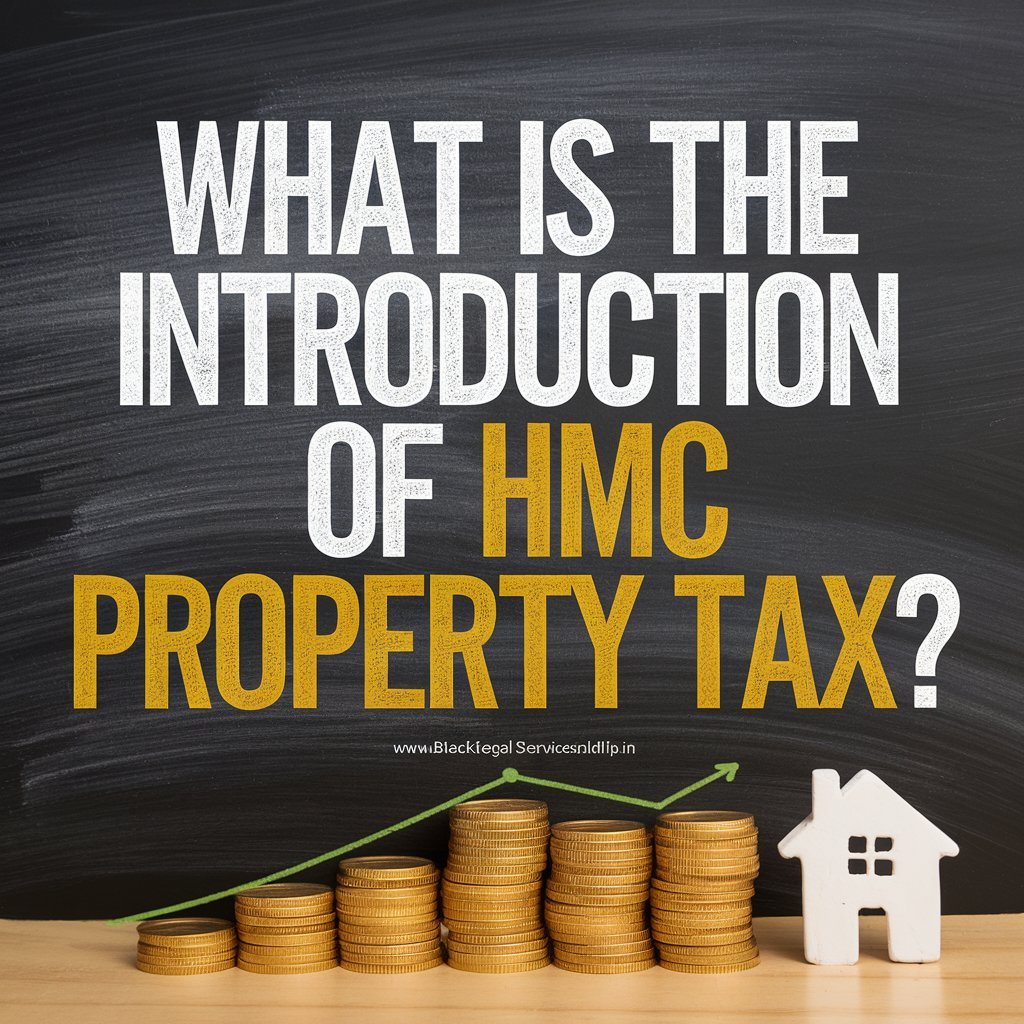
HMC property tax is a tax levied on properties that are owned by people in the Howrah Municipal Corporation area. This tax is imposed on all types of properties such as residential, commercial, and industrial properties within the operational area of the corporation.
Like other municipal authorities, HMC levies property tax to meet the needs of local infrastructure and other amenities that make the city profitable so that it can grow sustainably.
The property tax system is so fair and simple that every property owner must make his contribution based on the value or type of property and the size of the city to be developed.
Property taxes also help in maintaining public infrastructure such as parks, roads, and drains and making the city more comfortable.
What is the Legal Framework Governing HMC Property Tax?
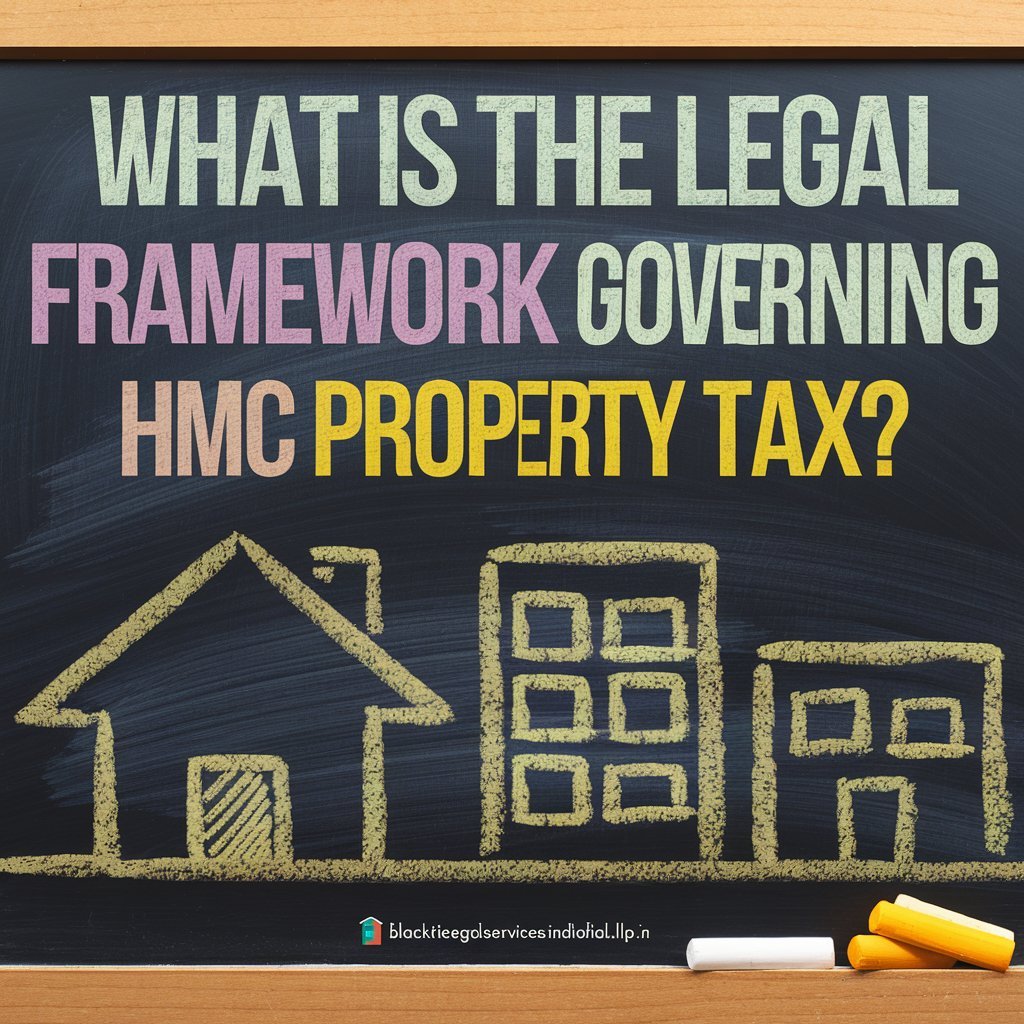
The HMC property tax is legally regulated by the Howrah Municipal Corporation Act of the year 1980 and other laws and acts amended with it. This law empowers the HMC to collect property tax from property owners.
It sets guidelines for assessment, collection timelines, and penalties as per the practice across the city. From time to time, the corporation may revise the property tax rate under the Act, and it is in accord with its authorities in that aspect.
This actually means that property owners have to comply with the provisions of the Act or else they will have to face legal repercussions. The Act also mentions the procedure for appealing against tax assessment or any dispute.
Which Types of Properties Liable for HMC Property Tax?
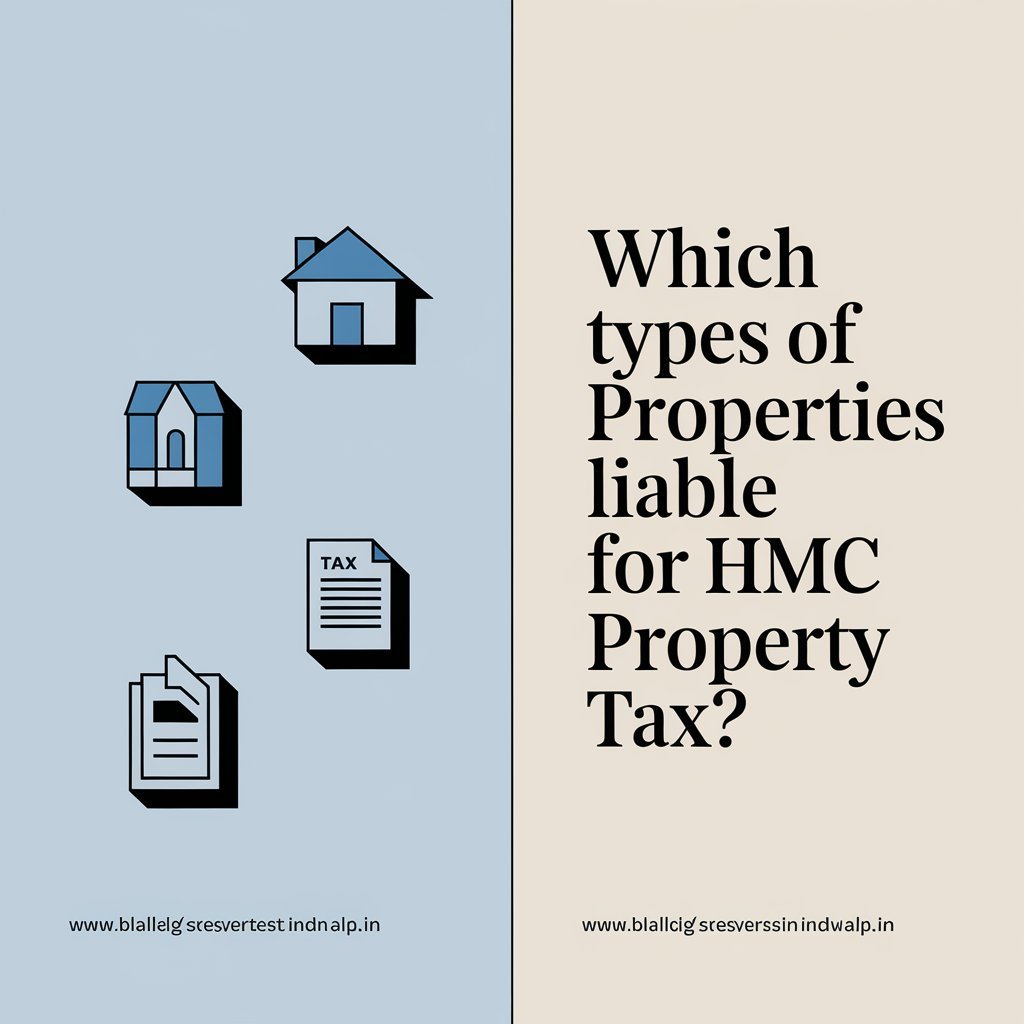
HMC Property Tax is applicable to various types of properties, including:
- Residential Properties: Self-occupied houses/offices/retail/commercial establishments consisting of more than one unit such as flats, apartments, houses, and villas
- Commercial Properties: Commercial buildings such as shops, offices, and business premises.
- Industrial Properties: Industrial facilities and areas.
- Vacant land: Areas of land that are not yet developed or areas that exist with structures under construction.
It is important to note that each property type is subject to the same treatment but differs in ways such as location, use, and size. Most domestic premises attract lower taxes than commercial or industrial premises.
The differentiation helps ensure that there is parity in taxation where people with higher earning potential or more utilities are charged more.
What are the Benefits of HMC Property Tax?
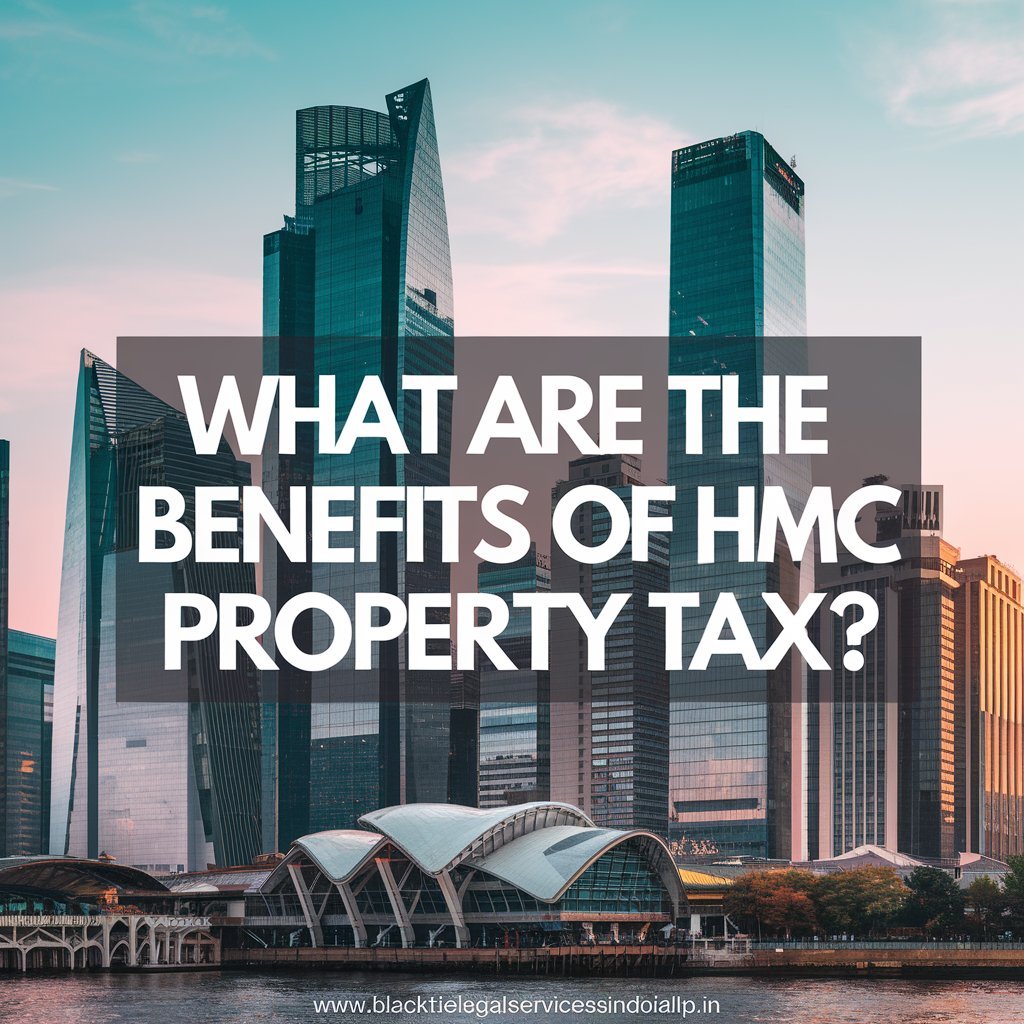
The HMC (Howrah Municipal Corporation) Property Tax is a tax levied on property owners by the Howrah Municipal Corporation. Paying property tax offers several benefits:
- Legal Ownership and Property Rights: One of the benefits of paying property tax is that it brings property ownership under the ambit of law so that the owner has legal backing to hold ownership of the property over someone else. It helps protect the property and serves as proof in ownership cases in case of dispute.
- Improvement in Civic Amenities: The public money received in the form of HMC property tax is used by to provide infrastructure and common necessities such as roads, water supply, drainage, parks, street lights, and sanitation to the public.
- Contribution to City Development: This is because the property tax is a rate that pays for the growth and development of the city in aspects such as urban planning, health, education, and constructing and improving transportation facilities.
- Access to Public Services: Paying property tax also helps the municipalities in providing the necessary services that affect everyone such as the collection of wastes, sewage, and maintenance of public facilities among others without interruptions.
- Avoidance of Penalties: Property owners can avoid the common problems of paying their property taxes late and therefore facing hefty fines, penalties, and other legal action. Not paying property taxes on time or at all can result in other costs or even running into trouble with the law.
- Increased Property Value: Real estate in sub-markets where there is efficient use of the tax base for development is more valuable. Well-maintained neighborhoods attract better investment opportunities.
- Eligibility for Loans and Grants: Having a clear record of property tax payments can make property owners eligible for government grants, loans, and subsidies for property improvement or other benefits.
- Government Services and Benefits: Tax on property is usually demanded when a person seeks any service or essential rights from government offices, which may include building permission, registration of properties, and transfer of property.
What is the Assessment of HMC Property Tax?
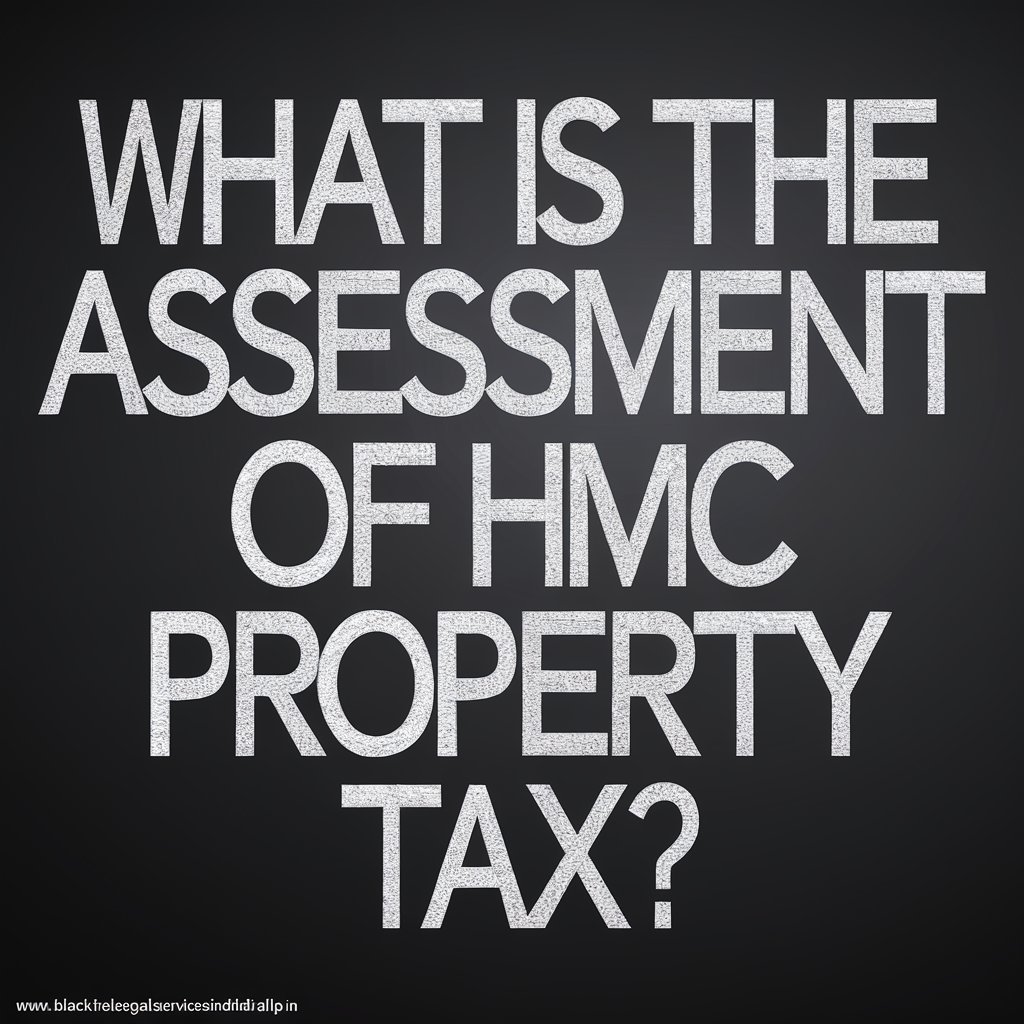
HMC (Howrah Municipal Corporation) property tax assessment is the process by which the amount of property value is calculated for the purpose of taxation. With the help of a number of factors, HMC property tax assesses properties to determine the amount of property tax. The assessment generally includes:
- Location of the property: It can be agreed that the nature and location of the property is an important explanation for the tax rate. Areas that have better physical surroundings, hence better infrastructure, usually have higher taxes.
- Type of property: As mentioned earlier, the characteristics of the property being assessed such as whether it is a residential, commercial, or industrial property also affect the assessment. Some of the factors that indicate that commercial property is more expensive than residential property include tax.
- Size and area of the property: The company owns the building and spaces and the built-up area or carpet area of the property is also included. Smaller-sized properties usually attract lower taxes than larger properties.
- Age of the property: This may be due to the difference in the depreciation factor applied by the municipal corporation and thus buildings, especially those that are relatively old, may be assessed at a lower rate than new constructions.
- Use of the property: Another factor in tax determination is the use of the property; It can be for residential purposes, rental purposes, or commercial activities.
- Occupancy Status: whether it is self-occupied, rented, or vacant as the tax depends on the use of the property. One thing to keep in mind is that if a property is rented then the assessment rate may be different from the rate of a self-occupied property.
- Floor Area Ratio (FAR): Other characteristics of the built-up land area, such as the total area of the built-up area to the plot area or the total area of the site can also affect the property tax assessment.
How to Calculate the HMC Property Tax?
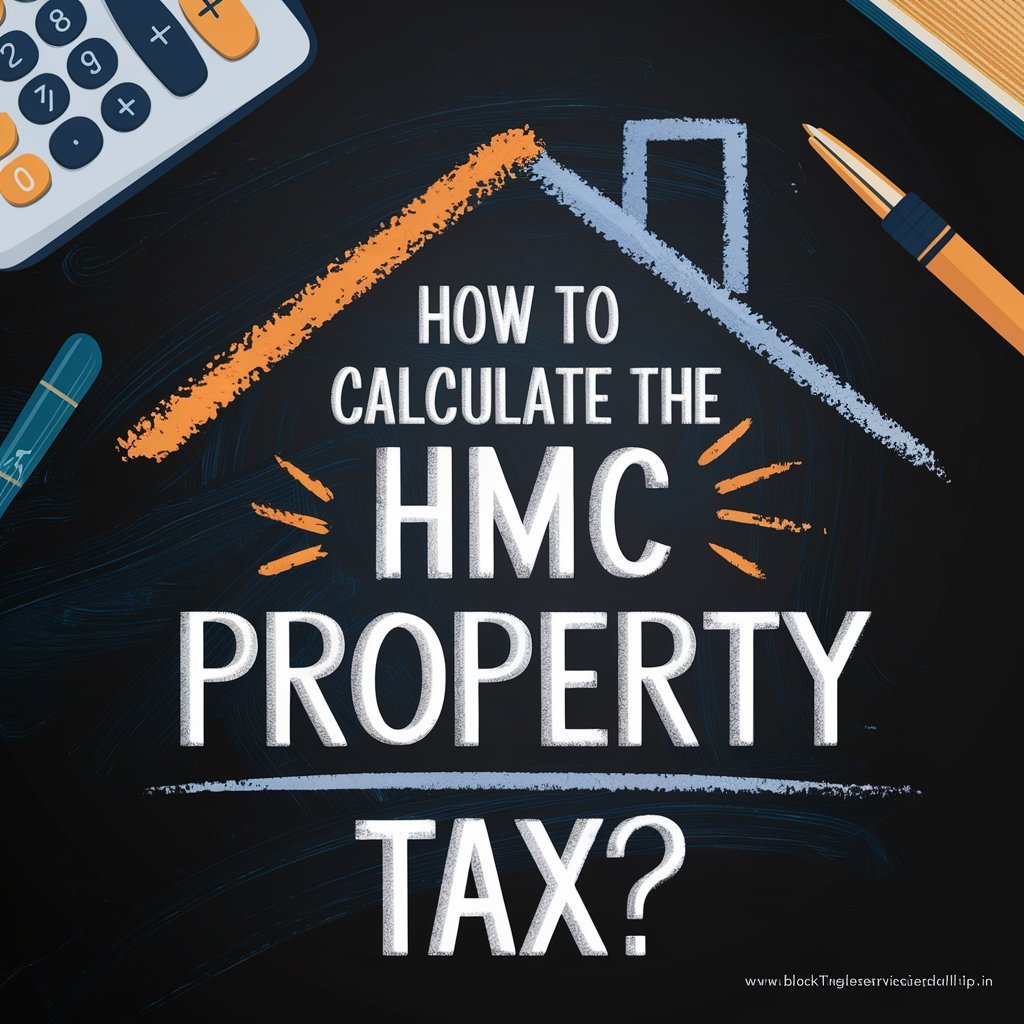
There are several factors involved in HMC property tax calculation. While specific rates and values may vary, the general formula for calculating property tax in Howrah usually looks like this:
Property Tax = Annual Value of Property × Rate of Tax
Where:
Annual Value of Property (AV): This is the capitalization of the property for the estimated rental value or annual gross income of the house. HMC property tax sometimes uses the ‘unit area method’ to arrive at this value, in which it takes a factor of the area of the property and the rate per square area.
Annual Value = Unit Area Value × Built-Up Area of Property × Occupancy Factor.
Rate of Tax: This is the HMC property tax rate used by and is usually in the form of a percentage of the annual value. However, this rate depends on the type of property being insured, such as residential, commercial property, etc.
Example of Property Tax Calculation:
For example, suppose you own a residential house in Howrah with a built-up area of 1000 sq. ft., and the unit area value is fixed by HMC property tax at Rs.10 per sq. ft.
- Annual Value: ₹10 per sq. ft. = ₹10,000
- Tax Rate: Let’s assume that HMC has fixed the tax rate at 20 percent.
- The Property Tax : It will be ₹10,000 × 20 / 100 = ₹2,000
Hence, the annual property tax payable for this property will be ₹2,000.
What is the HMC Property Tax Bill?
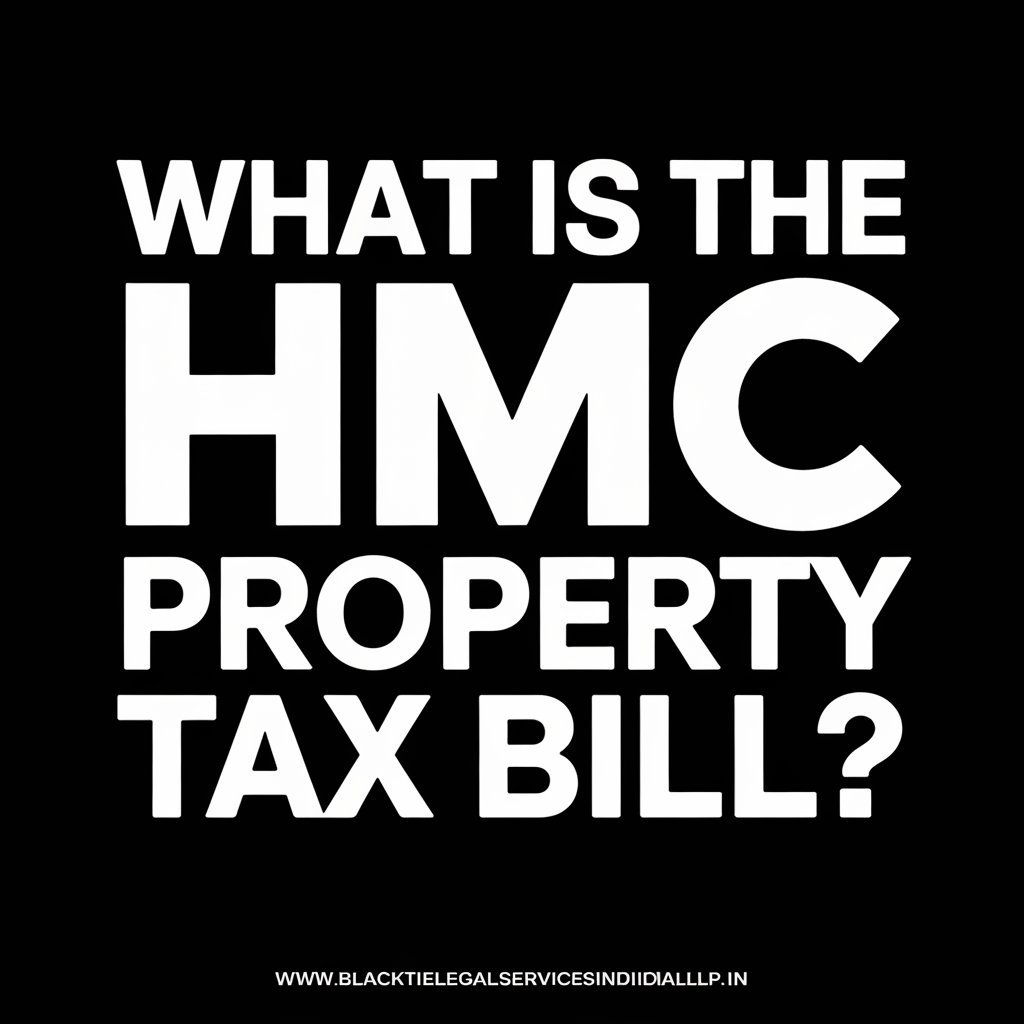
The HMC property tax bill is an official document that contains details of the property tax that you need to pay to the Howrah Municipal Corporation. It includes:
- Property details: Data such as property ID, owner name, property location, etc.
- Valuation information: Property size, property type, and property use.
- Tax calculation: Gross annual value, the percentage rate of tax, the total amount of tax payable.
- Additional charges: Such additional charges or penalties.
- Payment information: Specific deadlines for payment, acceptable modes of payment, and total amount payable.
- Contact information: Inquiries about the HMC office are provided in detail.
How to Get and Pay Your Bill
Online: Go online to the HMC website, enter your property ID, view/download the bill online, and pay online.
Offline: Go to the HMC office and ask for your bill and then be able to pay via cash, cheque, etc.
Importance
This means timely payments help you avoid penalties on your bills, enable compliance with legal processes, and help fund city services.
How to Pay HMC Property Tax Payment?
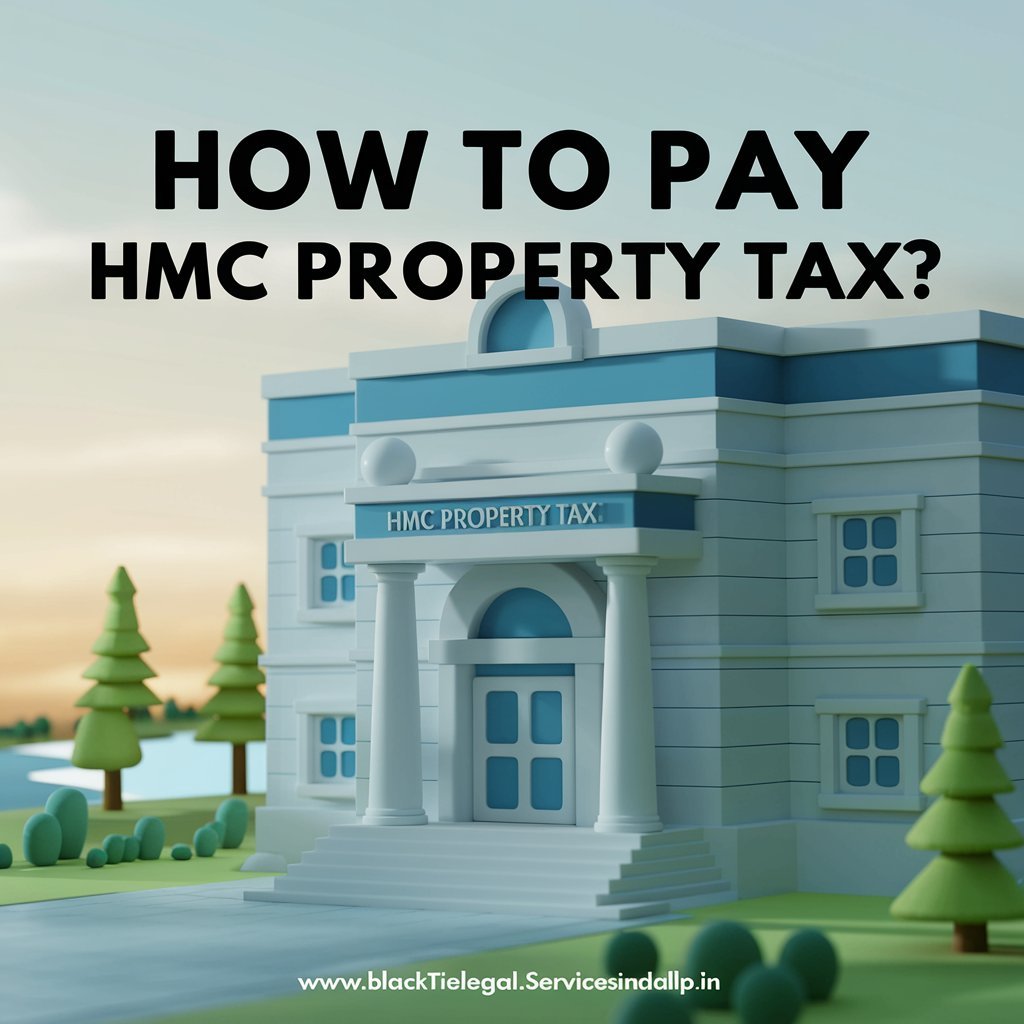
You can pay HMC property tax payment very easily, in the government of Howrah will be able to make payments through both online and offline methods, we have explained both methods step by step below:
Online Payment
- Visit the HMC Website: HMC has an official website where all relevant data can be found.
- Access the Property Tax Section: In most cases, it can be found under the “Property Tax” or “Online Payment” option on the homepage.
- Enter Property Details: You will need to provide your property ID or your assessment number to get tax-related information.
- View Tax Amount: Check the amount of tax to be paid, including additional charges or penalties, (if any).
- Proceed to Payment: Choose your preferred mode of payment (via credit/debit card, internet banking, UPI- Unified Payments Interface, etc.).
- Complete the Payment: Next, follow the instructions to finalize the transaction.
- Download Receipt: After making the payment, the payment receipt can be downloaded or printed to keep as a record.
Offline Payment
- Visit the HMC Office: Go to the nearest Howrah Municipal Corporation office.
- Obtain Property Tax Bill: Provide your Property ID or assessment number to get your tax bill from the counter.
- Review the Bill: Check the total amount due on the bill, including any penalties or additional charges.
- Make Payment: To clear the bill, pay at the office through cash, check, or demand draft.
- Collect Receipt: Another important factor to observe is that you should be given a payment receipt as an affirmation of the payment made.
What is the Due Date of HMC Property Tax?
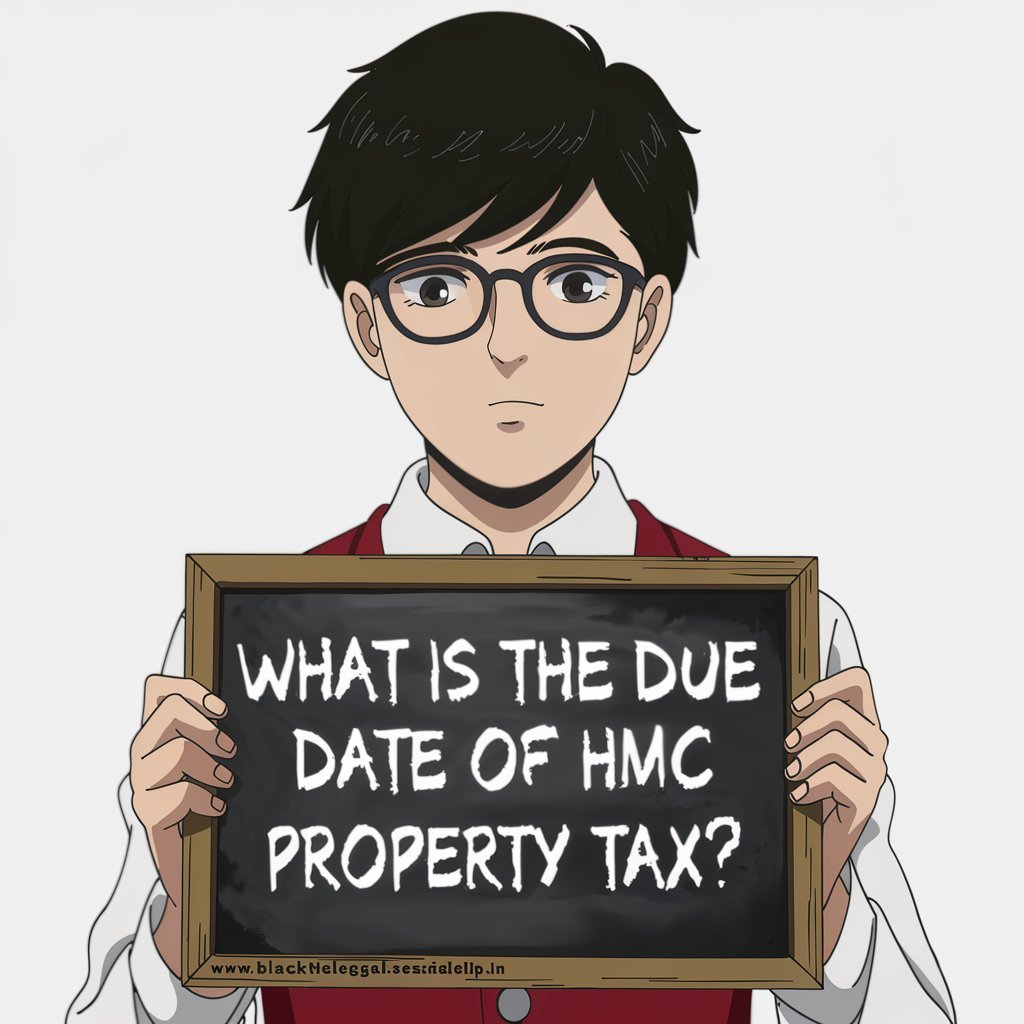
The HMC property tax due date usually falls at the end of the financial year, which is usually on March 31. Residents must ensure that they have paid their property tax before this date to avoid any penalty.
Key Points:
- Annual Payment: Property tax is usually assessed and paid on an annual basis and is due on March 31 each year.
- Late Payment Penalty: Often, in case of delay in payment, you may be charged additional fees or even interest on the unpaid amount.
How to Search the Property Tax by Name?

To find property tax details by name in IMC, follow these steps:
- Visit the HMC Website: Go to the official Howrah Municipal Corporation (HMC) website.
- Navigate to Property Tax Section: Look for the “Property Tax” or “Property Tax Search” section on the website.
- Select Search Option: Choose the option to search by name, if available. Some sites might offer search options by Property ID or address.
- Enter Details: Input the property owner’s name and any other required details like locality or property type.
- View Results: The system will display the property details and tax information associated with the name provided.
- Download/Print Information: You can usually view, download, or print the property tax details for your records.
What is the Age Factor in Property Tax?
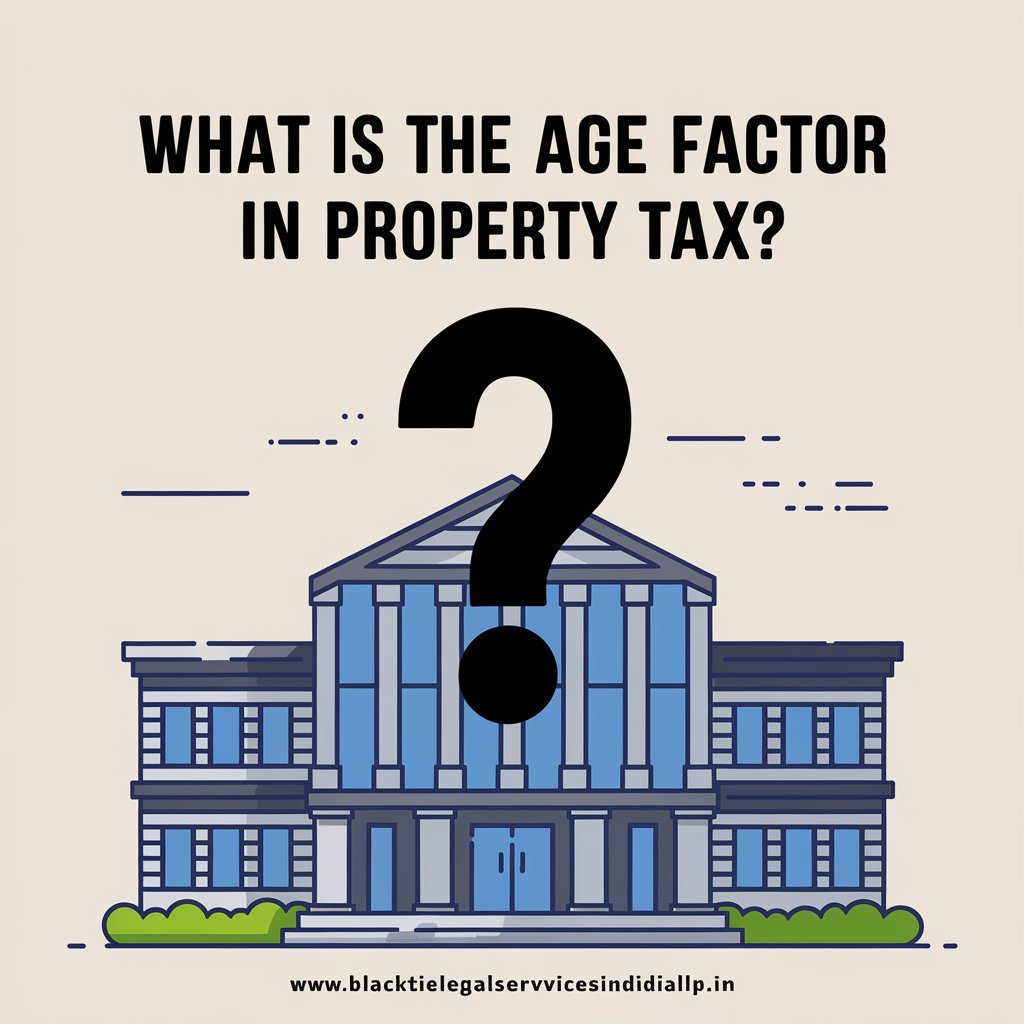
The age factor in property tax is considered as a depreciation or an adjustment of the taxes of a certain property depending on its age. Here’s how it generally works:
Depreciation
The annual value of the building may also vary, where the annual value of an old building may be less than that of a new building. This overwrites the value of the property at the time of valuation taking into account the depreciation factor.
Tax Assessment
Some of the municipalities might result in some certain percentage or formula which when applied to the age of the particular municipality would enable the right assessment of the value of the property. For example, a real estate that was built a few decades ago will be assessed at a lower value than a real estate newly built.
Impact on Tax Rate
Age factor can also be another factor that affects the general property tax rate; where older construction may attract a relatively lower amount of property tax compared to newer construction.
Note: Therefore, it can be seen that even the regular method of applying the age factor can have deviations in terms of the legal aspects of the respective country or the rules of Howrah Municipal Corporation.
Getting the most information through the HMC office or the HMC property tax website is probably the most accurate.
What is the HMC Zone List?
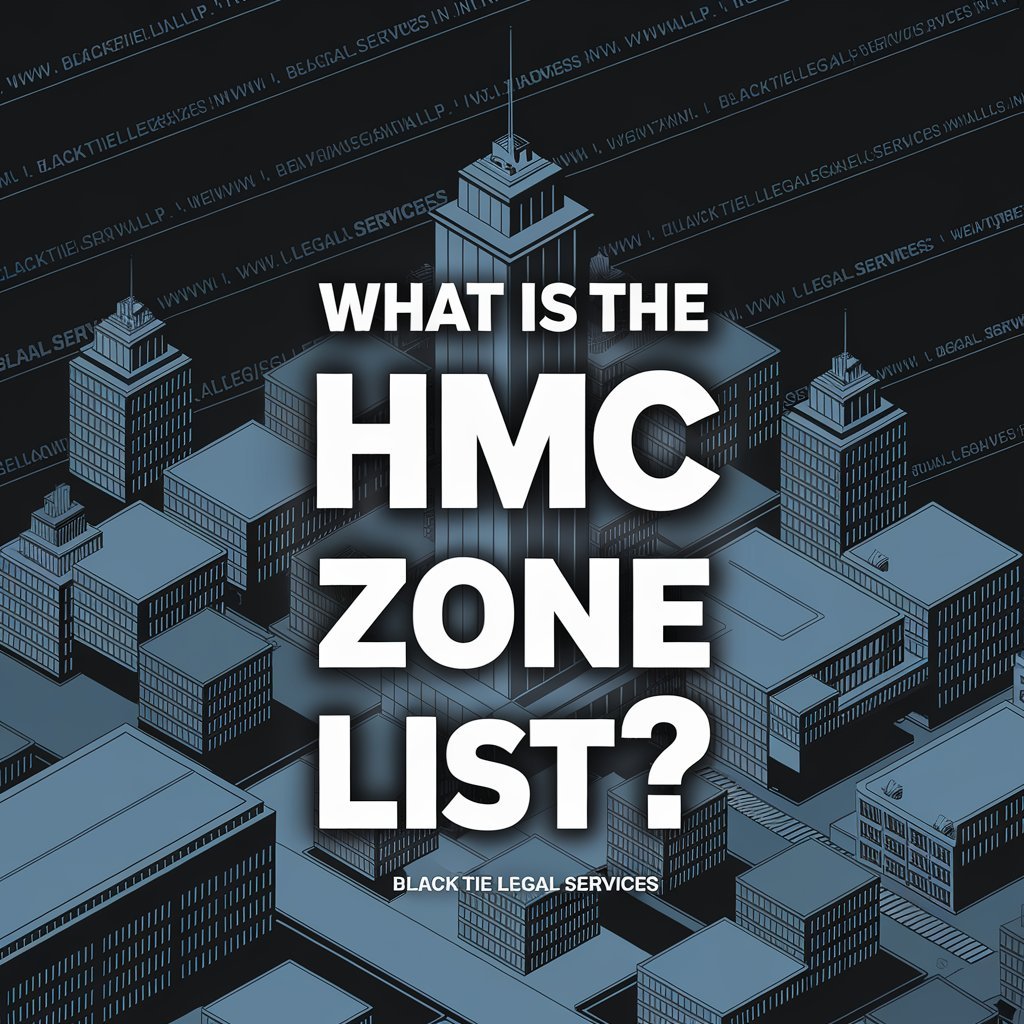
The city of Howrah is divided into Howrah Municipal Corporation or HMC property tax for administrative, governance, and administrative subdivisions, which facilitate the management of the city along with easy delivery of services in the operational areas of the city.
These areas are also divided into wards or sectors. Each area has to oversee the operation of certain municipal services such as cleanliness, repair of roads, and assessment of property taxes. Here is a general description of the HMC areas:
- Zone 1: Includes wards located in the northern parts of Howrah.
- Zone 2: Wards located in the central part of Howrah.
- Zone 3: It includes the extreme wards of the city in the southern part of the city.
- Zone 4: This zone includes both eastern and central wards.
- Zone 5: Mainly focuses on the western region of Howrah.
- Zone 6: This zone deals with the suburban area.
What are the Tax Rates and Slabs of HMC Property Tax?
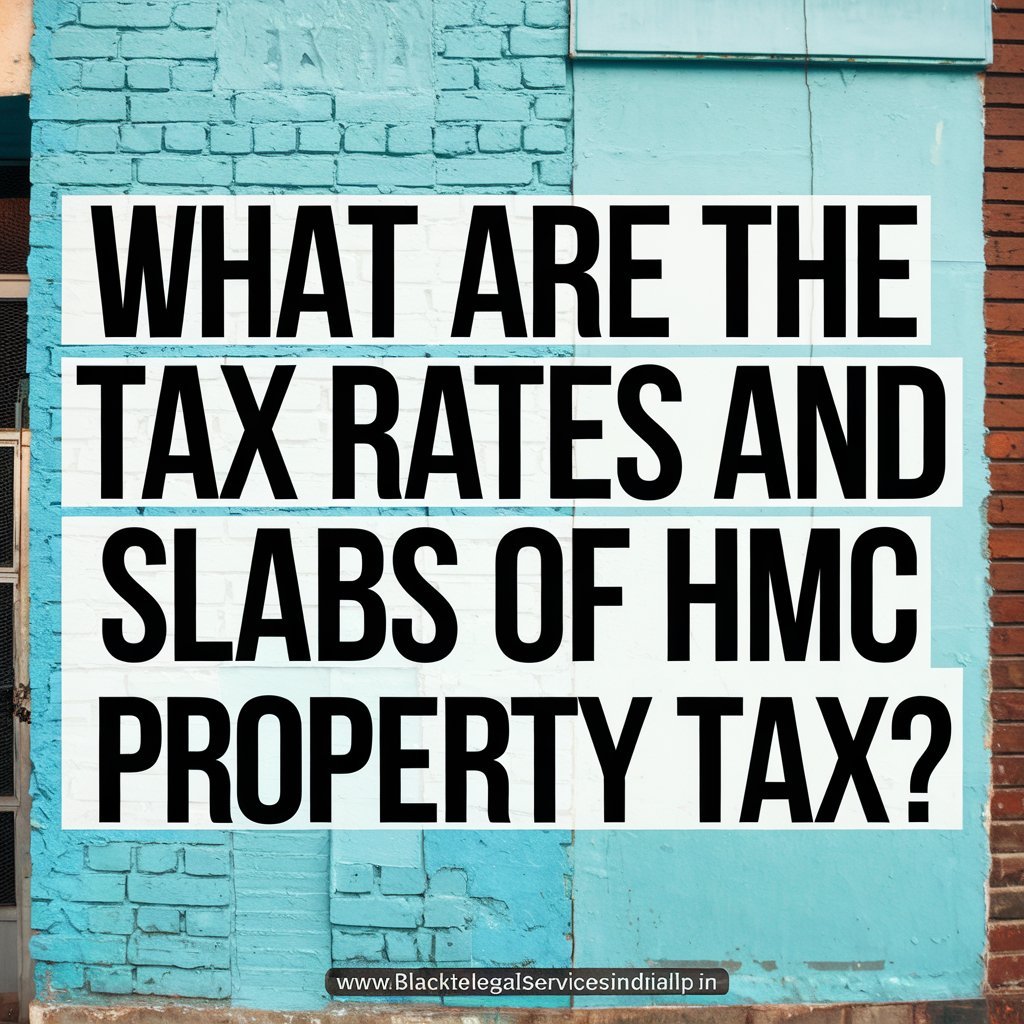
Here are the the overall tax rates and slabs of HMC property tax in table:
| Property Type | Annual Rental Value (ARV) Slabs | Tax Rate |
|---|---|---|
| Residential | Up to ₹5,000 | 5% |
| ₹5,001 – ₹10,000 | 7% | |
| ₹10,001 – ₹20,000 | 10% | |
| Above ₹20,000 | 12% | |
| Commercial | Up to ₹10,000 | 10% |
| ₹10,001 – ₹30,000 | 12% | |
| ₹30,001 – ₹50,000 | 15% | |
| Above ₹50,000 | 18% | |
| Industrial | Up to ₹20,000 | 12% |
| ₹20,001 – ₹50,000 | 15% | |
| ₹50,001 – ₹1,00,000 | 18% | |
| Above ₹1,00,000 | 20% | |
| Institutional | Up to ₹15,000 | 8% |
| ₹15,001 – ₹30,000 | 10% | |
| ₹30,001 – ₹60,000 | 12% | |
| Above ₹60,000 | 15% |
What are the Penalties and Non-Payment or Late Payment of HMC Property Tax?
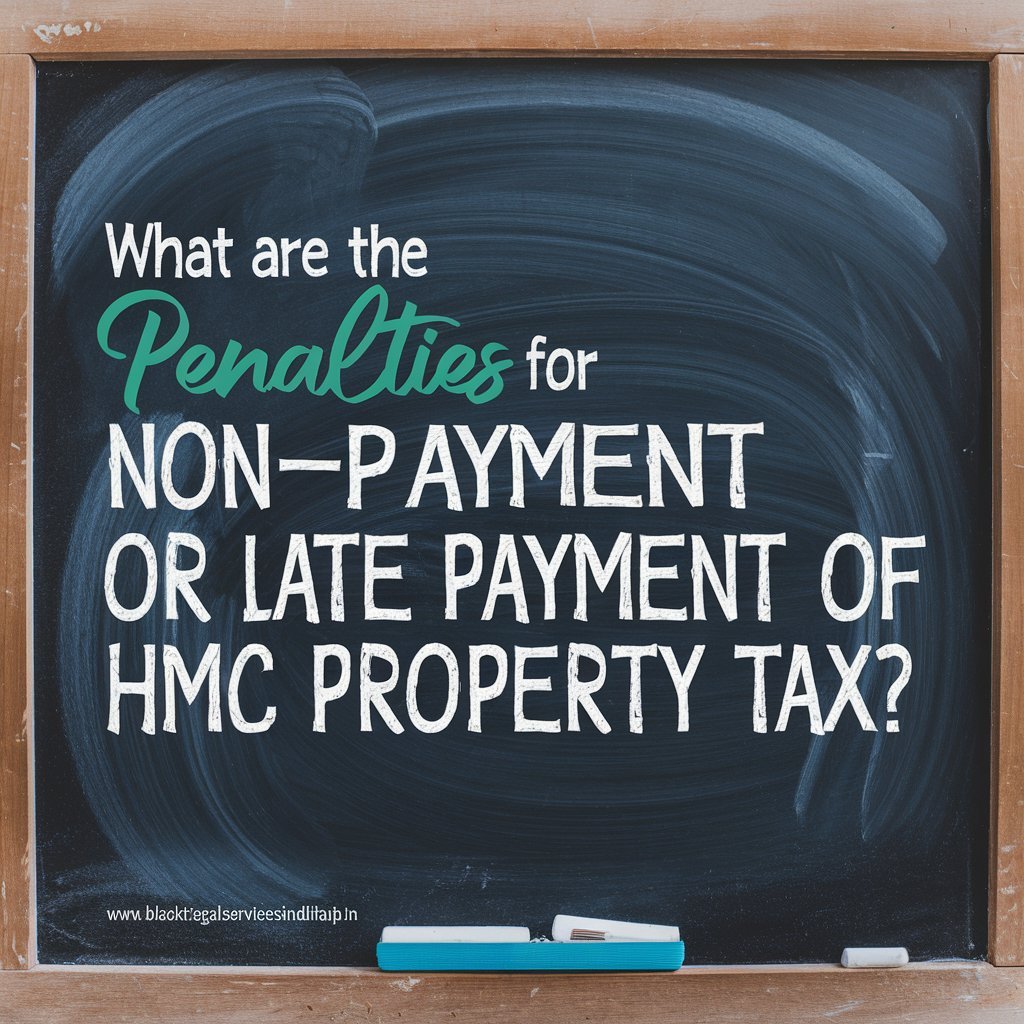
If a person or company defaults or delays in paying HMC property tax, a penalty and interest will be imposed on them. Late payments and non-compliance are some of the behaviors that HMC property taxwants to discourage from property owners and as a result, it imposes penalties.
- Interest on Overdue Payments: A certain percentage of interest is then charged on the amount the debtor has failed to pay and is added to the unpaid amount every month.
- Legal Action: Continuing overdue payments require harsh legal procedures like seizing or auctioning the property.
- Additional Penalties: In extreme cases, the latter penalties can lead to fines, disconnection of utility services, and other methods adopted by HMC to recover the dues
What is the Importance of Property Tax for Urban Development?
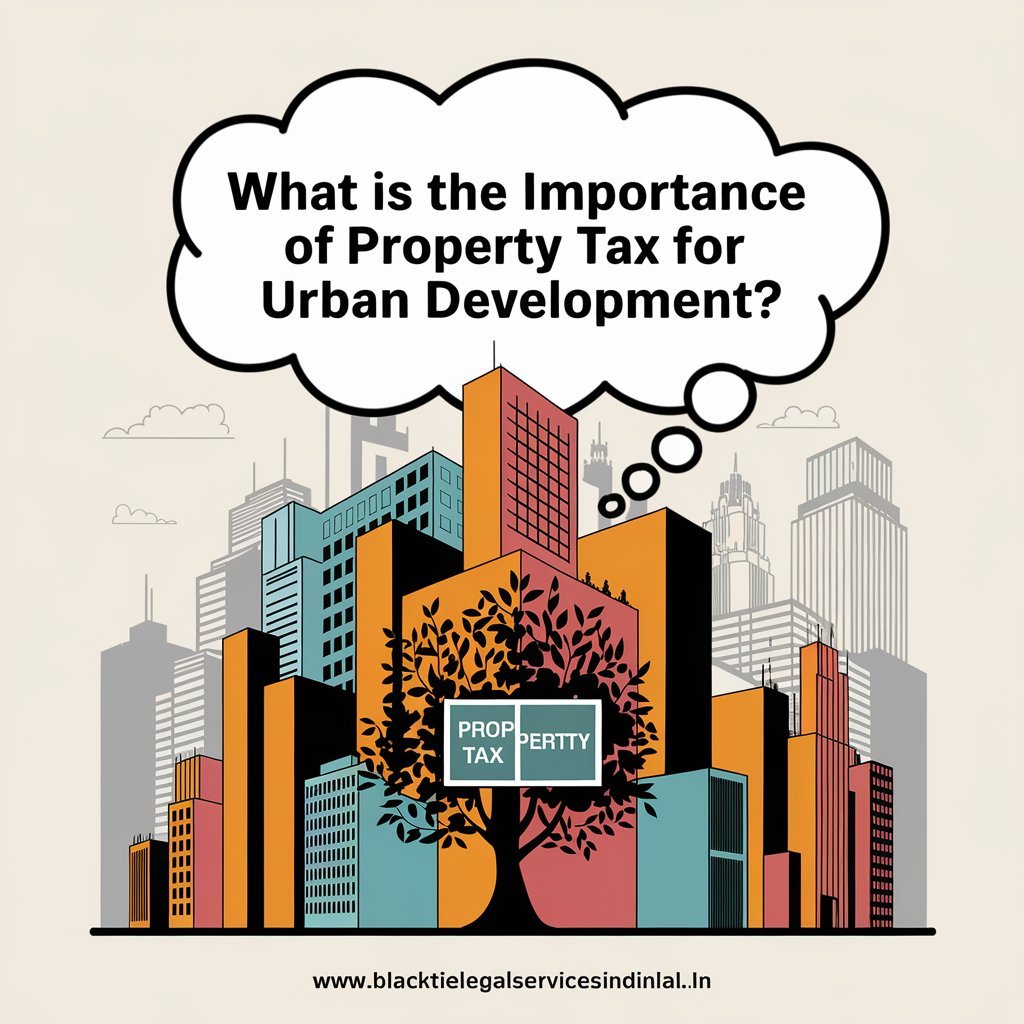
The HMC property tax collected by from properties are very important for the timely maintenance or development of physical amenities in the city. Some of the major areas where the revenue is used include:
- Waste Management: Sorting and disposal of waste in a proper manner.
- Road Maintenance and Development: Construction of new roads, and maintaining the already existing ones.
- Water Supply and Drainage: This includes the need to ensure that the clean water currently available is sufficient to meet human needs and other uses.
- Public Health Services: Maintenance of facilities such as hospitals and healthcare centers.
- Public Parks and Recreational Facilities: Ensuring that residents are provided with clean air and exercise facilities/facilities.
Proper management of property taxes can therefore help enhance overall city development in the best interest of both property owners and city residents.
What are the Challenges Faced by Property Owners?

There are several hurdles one faces after taking possession of a property, to ensure that they fulfil the HMC property tax laws. Some of the common issues are as follows:
- Complexity in Tax Calculation: One disadvantage is that the assessment process is not easy to understand, especially when it involves more than one factor that determines the final amount of tax paid.
- Lack of Transparency: Property owners may find the tax assessment process very unfair; this leads to disagreements in some form or the other.
- Delay in Payment: Offline payment for taxes can take a long time and some people may pay after the due date, hence incurring a penalty.
- Discrepancies in Tax Records: Many times these errors lead to incorrect tax data on the property, hence rectification is required.
In Conclusion
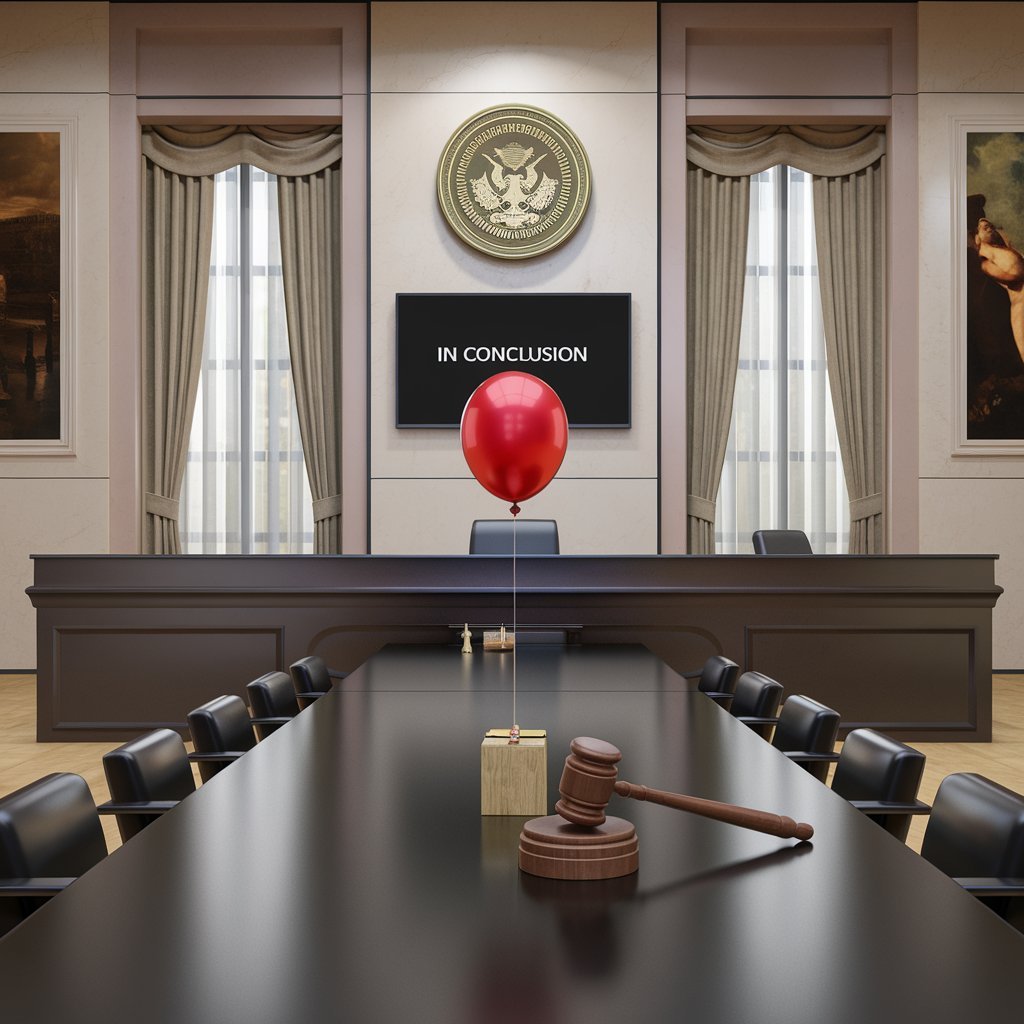
The HMC property tax is of great importance in meeting Howrah’s expenditure on basic needs and provision of civic amenities and infrastructure. Indeed as a property owner and therefore one who is bound to pay taxes, it is important to know how the taxes are structured, how they are calculated, and what procedures are followed when they have to be paid.
It is quite evident that the HMC property tax has implemented a user-friendly online system for easy payment of tax which has made the entire process easier. In addition, several exclusions and deductions are given to specific categories of property owners; this provides financial compensation wherever relevant.
FAQs
Q1. Can property tax rates change over time?
A1. Yes, the rates may be changed by HMC property tax after some time depending on government policies, inflation, and the needs of the development of Howrah city. Owners are encouraged to keep up with such changes with the aim of being more accurate in their payments.
Q2. What should I do if I believe my property tax assessment is incorrect?
A2. If the property owner feels that the property was assessed incorrectly, he has the right to appeal to HMC property tax. The corporation provides a process to review and reconsider the property assessment if there is a discrepancy. The appeal process may involve asking for additional documents and/or evidence.
Q3. Are there any discounts for early payment of property tax?
A3. Some municipal corporations also offer concessions such as discounts on property tax or perhaps lower rates for quick payment. It may be advisable to contact HMC property tax to find out if there are any provisions or incentives to pay the least amount of taxes.
Q4. How do I get a property tax bill if I lose mine?
A4. If you lose the property tax bill, you can get a copy from HMC by visiting the authority’s office or by logging into the online account on their official website. Almost all online platforms have a facility to download past bills.
Q5. Can I transfer my property tax liability to someone else?
A4. The primary responsibility of paying the amount of property tax lies with the owner. Under these circumstances, if the property is sold to a new owner, the new owner of the property takes the legal responsibility of the taxes. Nevertheless, the original owner must pay the tax dues before the sale is completed as it may affect the change of ownership.
Q6. What happens if I have inherited a property? Do I need to pay property tax?
A6. In fact, if a person inherits the property, he or she must pay the property tax. This is more common when there is a change in ownership of the property, you may want to update HMC about the new owners to reflect on the tax records.
Q7. Is there any deadline to pay property tax annually?
A7. In fact, generally, HMC sets certain deadlines for the payment of property tax, and information regarding these deadlines reaches the owners of the respective properties. This may attract interest or penalty after that, which has to be avoided and hence, the payment has to be made within the due time.
Q8. How can I update my property details with HMC?
A8. You are encouraged to change the details of your property by making the necessary application to HMC and submitting it with all relevant supporting documents. This may include the sale deed, identity proof and address change request. As mentioned earlier, the corporation usually evaluates and endorses such changes after verifying the documents.
Q9. Does HMC provide property tax receipts, and are they important?
A9. Yes, they do as it is evidenced by the following: Currently, the government receives property tax receipts after any payment is made by the property owner. These receipts are very important in any transaction with the law court or any kind of financial transaction on the property as they act as a legal receipt of payment.
Q10. Can I pay property tax in installments?
A10. While many municipalities allow installment-based payment schemes, you should verify whether HMC offers this option. If available, it could help manage large tax liabilities by breaking them into smaller, more manageable payments.

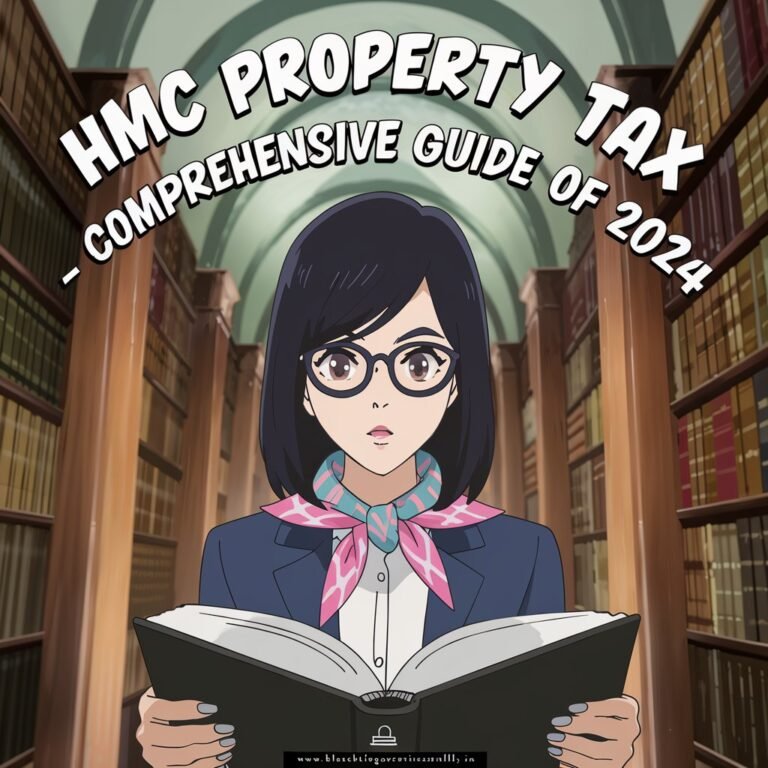
Add a Comment